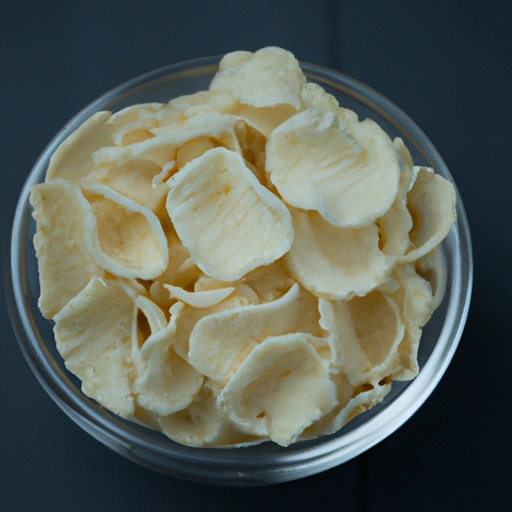Potato Flake
Description

Potato flakes are dehydrated mashed potatoes that have been processed into flat, dry pieces. They rehydrate quickly when mixed with water, milk, or other liquids, turning back into a mashed potato-like consistency. Potato flakes are known for their long shelf life, ease of preparation, and versatility in cooking. They provide an excellent alternative to fresh potatoes, saving time without sacrificing flavor or texture.
Common uses
Potato flakes are commonly used as a thickening agent in soups and sauces, as a binder in meatloaf or meatballs, and as a base for quick and easy mashed potatoes. They are also found in bread recipes to create a softer crumb texture. Due to their neutral taste and ability to absorb flavors, they are an adaptable ingredient in both savory and sweet culinary creations.
Nutritional value
Calories
A serving size of 1/4 cup (16 g) of potato flakes contains approximately 60 calories.
Protein
Each serving contains about 1 gram of protein, contributing to daily protein intake.
Fat
Potato flakes are naturally low in fat, with less than 1 gram per serving.
Carbohydrates
With about 14 grams of carbohydrates per serving, they provide a source of quick energy.
Vitamins
Potato flakes contain vitamins such as vitamin C and certain B vitamins, although in smaller amounts compared to fresh potatoes.
Minerals
They also provide essential minerals like potassium, which is important for heart health.
Health benefits
Potato flakes can contribute to a balanced diet by providing essential nutrients. Their potassium content supports heart health, while their carbohydrates offer a quick source of energy. However, they are best consumed as part of a varied diet alongside fresh fruits and vegetables.
Potential risks
Overconsumption of potato flakes, like any processed food, may lead to an excessive intake of sodium and calories. It's important to monitor portion sizes and opt for versions with reduced sodium when possible. Those with gluten sensitivity should also check labels, as some brands may contain additives that include gluten.
Common recipes
Potato flakes are often used to make quick mashed potatoes, potato pancakes, and as a topping for shepherd's pie. They can also be found in bread and roll recipes for a tender crumb.
Cooking methods
Rehydrate potato flakes by adding hot water or milk and stirring until the desired consistency is reached. They can also be mixed into dough or batter for baking.
Pairing with other ingredients
Potato flakes pair well with milk, butter, cheese, herbs, and spices for flavorful mashed potatoes. They also complement meats and vegetables in savory dishes.
Summary
Potato flakes offer a practical alternative to fresh potatoes with their ease of storage and preparation. While they are not a direct substitute nutritionally, they can be part of a healthy diet and are very useful in a variety of cooking applications. From thickening soups to creating soft bread, potato flakes are a pantry staple for cooks looking for a time-saving ingredient.